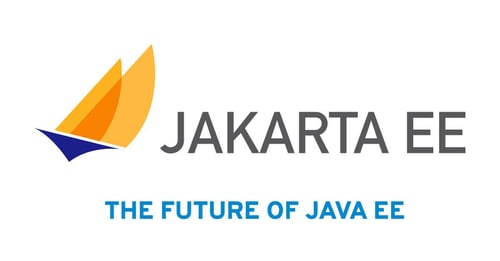Posts tagged JakartaEE (6)
Exploring Java Records In A Jakarta EE Context
Published on 30 May 2023
by Luqman Saeed
Topics:
JakartaEE,
Java
|
0 Comments
Java Records, one of the major highlights of the Java 16 release, provides a concise and immutable way to define classes for modelling data. This conciseness lends itself useful in a typical Jakarta EE application that can have a number of layers that need to share data. For example the data layer might want to return a subset of a given data set to a calling client through a data projection object. The REST layer might want to have separate entities for server and client side among others. This blog post explores the adoption of Java Records in a Jakarta EE application as a data transfer and projection object.
Payara Monthly Catch: May 2023
Published on 25 May 2023
by Priya Khaira-Hanks
Topics:
Microservices,
MicroProfile,
JakartaEE
|
0 Comments
What's New in the May 2023 Payara Platform Release?
Published on 24 May 2023
by Luqman Saeed
Topics:
JakartaEE,
New Releases,
Jakarta EE
|
0 Comments
With the team freshly rejuvenated from the annualPayara Retreat,the May release of the Payara Platform is out with enhancements and bug fixes to rejuvenate your deployments. Payara Platform Enterprise 6.2.0 comes with 4 bug fixes, 3 improvements, a security fix and 6 component upgrades. Payara Platform Community 6.2023.5 also comes with 4 bug fixes, 5 component upgrades, 1 security fix and 1 improvement.
How To Consume and Return Data In YAML In Jakarta REST
Published on 16 May 2023
by Luqman Saeed
Topics:
Java EE,
JakartaEE,
Java,
Jakarta EE
|
0 Comments
YAML is a simple, human-friendly data serialization language for all programming languages. It is the main format for working with Docker. As a language agnostic format, there are many bindings for all the major programming languages. You can easily consume and return data in the YAML format in your Jakarta REST application using message body readers and writers.
How To Get Resource Method Information With ResourceInfo In Jakarta REST
Published on 03 May 2023
by Luqman Saeed
Topics:
REST,
JakartaEE,
Jakarta EE
|
2 Comments
Oftentimes in a Jakarta REST application, you may need to access some metadata about a given resource method matched by the Jakarta REST runtime, outside of a resource class. This could be so as to dynamically alter the client's request based on some custom business requirement, or for informative purposes. For example, in a Jakarta REST component like an exception mapper, you might want to get the currently matched resource method and get its HTTP method.
Make Your Voice Heard In The 2023 Jakarta EE Developer Survey
Published on 20 Apr 2023
by Luqman Saeed
Topics:
MicroProfile,
JakartaEE,
Jakarta EE
|
0 Comments
Are you an Enterprise Java Developer? Or even a Java developer? If yes, then here is your chance to make your voice heard in the2023 Jakarta EE Developer Surveythat is currently on-going. The survey is organized by the Jakarta EE Working Group, the body responsible for steering the development and advancement of cloud native Java development at the Eclipse Foundation.
What's New in the April 2023 Payara Platform Release?
Published on 19 Apr 2023
by Luqman Saeed
Topics:
MicroProfile,
JakartaEE,
Jakarta EE
|
0 Comments
From the Payara Engineering hutch comes a number of quality of life improvements in the April 2023 Payara Platform Releases. Payara Platform Community 6.2023.4 comes with a bug fix, 4 component upgrades and 1 improvement. Payara Platform Enterprise 6.1.0 comes with 2 improvements, 1 bug fix and 4 component upgrades. Payara Platform Enterprise 5.50.0 also comes with 1 improvement, 1 bugfix, 1 security fix and 1 component upgrade.
From Java to Jakarta EE: A Guide to Building a Career in Enterprise Java Development
Published on 18 Apr 2023
by Luqman Saeed
Topics:
JakartaEE,
Jakarta EE
|
0 Comments
Getting Started With Jakarta EE 10 - Jakarta CDI
Published on 04 Apr 2023
by Luqman Saeed
Topics:
CDI,
JakartaEE,
Jakarta EE
|
1 Comment
Jakarta EE 10, the first major release of the platform since it was transferred to the Eclipse Foundation, did come with a slew of changes and updates to many of its constituent specifications. One such specification that received updates is the Jakarta Contexts and Dependency Injection specification. The specification release version for Jakarta EE 10 is Jakarta CDI 4.0, which came with major changes.
Two of such major changes are the split of the specification into a Lite and Full profiles and the change in default behaviour for an empty beans.xml file. In this blog post, we take a quick look at getting started with Jakarta CDI, in my view, the single most influential specification on the Jakarta EE Platform.
Payara Monthly Catch: March 2023
Published on 31 Mar 2023
by Priya Khaira-Hanks
Topics:
Microservices,
MicroProfile,
JakartaEE
|
0 Comments



.png?width=500&name=download%20(21).png)

.png?width=500&name=2023%20Jakarta%20EE%20Developer%20Survey%20-%202%20(2).png)
-3.jpg?width=500&name=April%20(1)-3.jpg)

.jpg?width=500&name=Thumbnails%20(3).jpg)